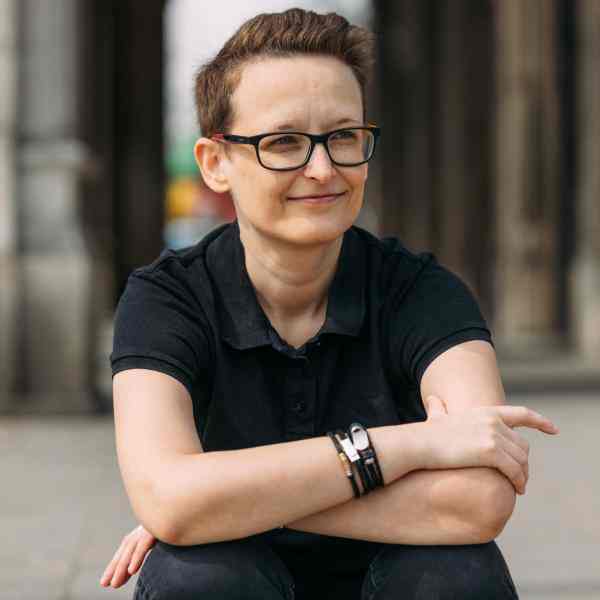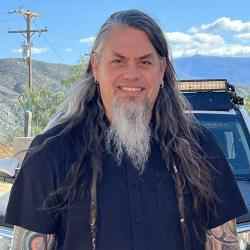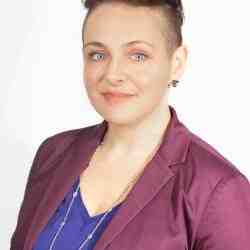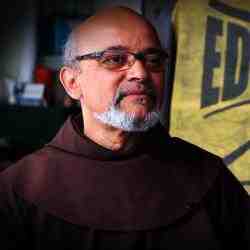Bevezetés
There is a widespread belief that men are more likely to be on the autism spectrum. However, in Poland alone, there are 500K women and non-binary people late-diagnosed or not to be diagnosed at all on the autism spectrum. Ewa opens a spectrum of possibilities for diagnosis and full life for girls and LGBT+ people on the autism spectrum.
Az új ötlet
Research published in "The Lancet" indicates that as many as 89% of adult women on the autism spectrum experience suicidal thoughts. Many autistic women and nonbinary people struggle with missed psychiatric diagnoses, a sense of loneliness, and misunderstanding.
Ewa was misdiagnosed and mistreated for nearly 30 years before she received the diagnosis of being on the autism spectrum. Diagnosis allowed her to connect the dots of her experiences, and understand herself better, as well as to better understand others and the world. She realized that her experience is not isolated, and there are thousands of people who struggle and are not able to contribute to society as long as they do not understand themselves.
Ewa launched the first self-advocacy CSO in Poland focused on gender aspects of the autism spectrum - Girls on the spectrum. Ewa is convinced that this change will allow all people on the autism spectrum to have a full life, especially when the need for change comes from those who are impacted by the lack of it. That's why one of the streams of her work is self-advocacy based on three strategies. Firstly, "You are", Ewa conducts a broad media campaign to show that women on the autism spectrum are part of society but also universalize self-diagnose, giving a chance for women to diagnose themselves as a person on the autism spectrum. Secondly, "You are not alone"; Girls on the spectrum runs flagship peer groups that serve as support and growth spaces. Thirdly, "You are a contributor"; Ewa also creates spaces where women can find female role models on the spectrum to get inspired and broaden their perspectives in professional life.
The second stream of the organization's work is creating accreditation for gender-sensitive professionals in the field of the autism spectrum. Special educators, psychologists, and diagnosticians gain access to dedicated publications and workshops that will allow them to get accreditation as professionals sensitive to gender differences on the autism spectrum.
Work with the broad ecosystem is part of the third stream and includes work with mass media and influencers. Ewa wrote a bestseller book and consulted a script for Netflix series about a girl on the autism spectrum.
In the coming years, Ewa plans to enable every girl and woman in Poland and across Europe to have a chance for a proper diagnosis and full life, where also every non-male person on the spectrum can be a support for themselves and others.
A probléma
Girls and women learn to hide their emotions and to please others more easily, resulting in more difficulty in detecting women on the autism spectrum. They learn how to maintain eye contact or regulate their sensory needs in socially acceptable ways. Due to that, and the general belief that autism is a boy’s condition, women seldom are diagnosed as on the autism spectrum. Unlike in boys and men, the autism spectrum is not expected in girls and women. Several studies have confirmed that even if a boy and a girl show similar autistic behaviors, a boy is more likely to be diagnosed. A girl will only be diagnosed if she simultaneously exhibits so-called “difficult behaviors” and intellectual disability. Women however are suspected by diagnosticians of personality disorders (these, in turn, are expected in women, as opposed to men). The available diagnostic tools also lack gender sensitivity. Girls' verbal communication in the spectrum is more oriented toward interaction and reciprocity, and gestures are livelier than in boys. Due to these results, the examination using the ADOS-2 diagnostic tool did not confirm the diagnosis of the autism spectrum in them, although the clinical picture and medical history indicated it. Therefore, a lot depends on the attentiveness and sensitivity of diagnosticians and on how they interpret the results of tests and observations.
Most professionals don't know about the gendered aspects of autism, and autism is still over-medicalized. Autistic women are most likely to experience depression, anxiety disorders, and bipolar disorder. Social phobia, generalized anxiety disorder, obsessive-compulsive disorder and selective mutism are the most common anxiety disorders.
Suicide is the most common cause of premature death in autistic people without intellectual disabilities. An adult on the autism spectrum is more than nine times more likely to commit suicide than a neurotypical person of the same age. 66% of highly functioning people on the autism spectrum have thoughts of suicide, compared to 9% of the general population, while 35% of that group on the autism spectrum report suicide plans and attempts. Data broken down by gender indicates that women in those groups are even at greater risk. Women are commonly treated for depression, anxiety, and other disorders, without being diagnosed with autism, an underlying condition.
Research carried out in Toronto on a group of women who received a diagnosis in their adult life reveals how women perceive their lives before the diagnosis: as frightening and unpredictable, overwhelming and disorienting, with a pervasive feeling of difference and great difficulties in functioning in groups, as well as isolation and loneliness, which affects self-esteem, and the feeling of being completely misunderstood. Late diagnosis in women is associated with social isolation, increased exposure to anxiety disorders and depression, and reduced personal and professional development.
Personal and professional development leads to a full life, which includes following passions and being able to make a living. Passions are often a life priority and the primary life motivation for people on the autism spectrum. They are too rarely understood and supported by relatives of autistic people and too often viewed as threatening. The activities that people on the autism spectrum consider their passion is often labelled as fixations and obsessions, and the therapeutic norm is their "extinction."
A stratégia
Ewa works with three self-advocacy strategies building on each other. It starts with "You are" – firstly, people need to learn that there are women on the autism spectrum, and some might need to be diagnosed. Ewa is also convinced that self-diagnosis for some might be a compelling experience. Ewa promotes both professional diagnosis and self-diagnosis in mass media, including Polish editions of Vogue and Newsweek as well as in the oldest weekly magazine in Poland – Tygodnik Powszechny. Girls on the spectrum is part of the mainstream narrative. This year Girls on the spectrum was nominated to Ofeminin Influence Award 2022 in the Mind Care category among top YouTubers and influencers.
Secondly, the pillar of "You are not alone", creates support and growth spaces for teenagers, women, and transgender and nonbinary people on the spectrum. The idea of a self-help group is to draw support from one's own resources. This means that each participant of such a group plays a dual role - sometimes as a person receiving support from the other members and at other times as a supporting person. Therefore, the equality of all participants distinguishes a self-help group from other forms of groups, e.g., support groups. The facilitator is not only an expert but also shares identity with other members and is a participant in the group, sharing his/her experience and insights and asking questions.
People participating in these self-help and development groups have reported that it was the best developmental experience that they had ever experienced. They report that they felt understood and safe that they could be fully themselves. There are groups for women, for LGBT+ people, and teenagers on the autism spectrum. The demand for participation in groups has exceeds the available supply. New groups have just started, but there is a clear demand for these groups to become available at a bigger scale. 150 people signed up to join a group with 13 spots. Today Ewa and her team are developing a process of training facilitators to be able to expand the much-needed offer significantly.
Ewa and her team also have developed community offerings for people who were part of self-help and development groups not only to address their needs, but most of all to use their potential. This will take various forms, from engaging in activities proposed by Girls on the spectrum, to creating their own independent initiatives. They works also with parents. which is led by mothers who were diagnosed on the autism spectrum, subsequently after their children were diagnosed to be on the spectrum.
The third strategy "You are a contributor…". Ewa is convinced that people on the autism spectrum need to recreate a world in which there is a license to neurodiversity. It means that there is a place for unusual behavior that disturbs no one, and society knows how to behave and how not to behave in the context of neurodiverse people. Ewa also creates online and offline spaces named Passionate Women (pol. Pasjonatki), where women can find female role models on the spectrum to get inspired and broaden their perspectives in professional life. Thanks to that, female and nonbinary people on the autism spectrum as well as parents realize that they and their children on the autism spectrum can have meaningful, full lives. Zawodowe Zaprzyjaźnianie (Eng. Professional Friendship) is a mentoring method where personal and professional shared experiences are a base for growth. Both: mentors and mentees are women on the autism spectrum. The relationship is oriented toward finding and keeping a job consistent with the interests and qualifications of the participant. Participants’ development process should include identification of strengths, professional and social competence development, preparation for the process of recruitment (or starting one’s own company) and to work in the profession. The relationship strengthens character and motivates development. The University in Łódź is currently adapting Professional Friendship to the needs of their students in the context of enrolling in the university.
In order to allow all persons on the autism spectrum to have a full life Ewa works with professionals: psychologists, educators, therapists, teachers, and so on. A significant group of professionals is aware of their lack of knowledge and competencies regarding women and nonbinary people on the autism spectrum. Ewa started her work with those early adopters. Ewa and her team train professionals in gender aspects of the autism spectrum. Five hundred copies of their publication – Passionate – were distributed to professionals in the first days. Those professionals who attend Ewa's workshops, webinars, and groups are the first base of professionals to join the accreditation process. Ewa has introduced accreditation for gender-sensitive professionals in the field of the autism spectrum. She has built a coalition of nonprofessionals and professionals to do so and to enable further development of that network. The network will be an excellent support for people on the autism spectrum to know where to look for educated and aware professionals, but also a network of like-minded professionals who can support each other when a second opinion or supervision is needed. To fix the diagnosis and therapeutical process for LGBT+ teenagers on the spectrum Ewa and her team published the first guide for autism spectrum professionals about this demographic. The guide for professionals is a response to the need for reliable, scientific, and unbiased knowledge about gender identity and sexual orientation, which is often difficult for specialists to access.
Ewa constantly looks for leverage points in the ecosystem that must be tackled. From consultation of TV scripts for streaming platforms to attending the Parliamentary Group on Autism in Polish Parliament meetings. Ewa consulted a script for Netflix series – Lovzone, which comes out in the fall of 2022. Thanks to Ewa's insights, the main character – a girl on the autism spectrum - is an empowering portrayal. Ewa is convinced that this series will significantly impact teenagers on the spectrum. Ewa's book A Girl in the spectrum became a bestseller, and the publishing house had to reprint it. The book has broad media coverage and was accompanied by many author meetings. Teachers who read that book report that they were able to detect autism symptoms among their female students at school. It also supports people, primarily parents, in understanding their loved ones on the autism spectrum. Ewa's next book will be published at the end of 2022. This is an integral part of spreading the perception of autism as neurodiversity and implementing changes in the world that will benefit neurodiverse and neurotypical people alike.
In 2016, Ewa was the first person who started a conversation about gender on the autism spectrum in Poland and is an important voice in Europe. She was the first to mention gender aspects of autism in her publications. Currently, there are many more references, but Ewa has become the authority in the area in Poland and beyond, and the nucleus of the broad community she has built. She aims to take advantage of this authority to make accreditation for gender-sensitive professionals a common standard in Poland and in Europe.
A személy
From an early age, Ewa was perceived as a good girl. Ewa, in her childhood, felt like a boy, and it was terribly bad for her that others treated her like a girl. She preferred the company of adults, avoided children, and her favorite thing at home was the encyclopedia. Ewa resisted school from the start. However, her resistance was broken, and she quickly turned into an intimidated, nervous little girl who did not want to get into trouble. Despite being the best student at primary school, school stressed her so much that she had to take medication to calm her down. Ewa's survival strategy was to become a people pleaser. It was working till university when the stress was too much. After her suicide attempt and stay in the psychiatric hospital, the rhythm of Ewa's life began to be marked by subsequent episodes of depression.
Nevertheless, Ewa was compassionate and empathetic. Ewa has been socially engaged since 2000. She started as a volunteer for Amnesty International during her studies. Then she worked in several feminist and equality organizations. She spent the longest (twelve years) at Fundacja Przestrzeń Kobiet (The Women's Space Foundation). Ewa co-founded two organizations, and she independently founded one. In each of these organizations, Ewa worked with her own identity: as a woman, as a lesbian, as a person with the experience of living in a smaller town, and finally, as a person on the autism spectrum. She has only known about her last identity since 2015.
Until the autism spectrum diagnosis, Ewa did not have a coherent story about herself. The diagnosis allowed her to merge her story into a meaningful picture and find peace. Ewa has stopped bothering herself about her weaknesses in social interaction. She decided to work on her strengths to support others and transform circumstances to be more supportive of neurodiverse people and, in the end, everybody.




